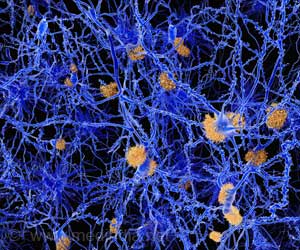Does flavanol supplementation improve memory in flavanol-deficient individuals? Discover the link between flavanols and age-related memory loss.
- Study reveals low dietary intake of flavanols correlates with age-related memory loss
- Flavanol supplementation enhances memory in individuals with flavanol deficiency
- Further research needed to confirm the causal relationship and explore dietary flavanol replenishment in midlife for memory improvement
Dietary flavanols restore hippocampal-dependent memory in older adults with lower diet quality and lower habitual flavanol consumption
Go to source). The study discovered that flavanol intake among older persons correlates with results on tests designed to detect memory loss related to normal aging and that replenishing these bioactive dietary components improves performance on these tests in mildly flavanol-deficient adults over the age of 60.
The discovery also lends credence to the increasing notion that the aging brain, like the developing brain, requires particular nutrients for optimal health.
"The identification of nutrients critical for the proper development of an infant's nervous system was a crowning achievement of 20th-century nutrition science," says the study's senior author, Scott Small, M.D., the Boris and Rose Katz Professor of Neurology at Columbia University Vagelos College of Physicians and Surgeons.
"In this century, as we are living longer research is starting to reveal that different nutrients are needed to fortify our aging minds. Our study, which relies on biomarkers of flavanol consumption, can be used as a template by other researchers to identify additional, necessary nutrients."
Changes in Hippocampus Linked to Age-Related Memory Loss
The latest work builds on over 15 years of research in Small's lab that linked age-related memory loss to changes in the dentate gyrus, a specific area of the brain's hippocampus that is critical for forming new memories, and demonstrated that flavanols restored function in this brain region.Further research in mice revealed that flavanols, specifically a bioactive ingredient in flavanols known as epicatechin, increased memory by stimulating the development of neurons and blood vessels in the hippocampus.
Small's team then evaluated flavanol supplementation in humans. One modest investigation found a relationship between the dentate gyrus and cognitive aging. A second, larger trial found that flavanols improved memory by working preferentially on this brain region, with the greatest impact on individuals who began with a poor-quality diet.
The Columbia team partnered with Brigham and Women's Hospital researchers who were examining the effects of flavanols and multivitamins in COSMOS (COcoa Supplements and Multivitamin Outcomes Study). COSMOS-Web, the present trial, was meant to assess the influence of flavanols in a much broader cohort and investigate if flavanol shortage accelerates cognitive aging in this part of the brain.
Flavanol Supplementation: Boosting Memory in Flavanol-Deficient Individuals
For three years, almost 3,500 healthy older persons were randomly assigned to either a daily flavanol supplement (in tablet form) or a placebo pill. The active supplement contains 500 mg of flavanols, including 80 mg of epicatechins, which adults should acquire from meals.At the start of the trial, all participants filled out a survey about the quality of their diet, which included items high in flavanols. Participants then completed a series of web-based activities devised and validated by Brickman in their own homes to test the forms of short-term memory governed by the hippocampus. The examinations were repeated after the first, second, and third years. The majority of participants identified as non-Hispanic and white.
Before and during the study, more than a third of the participants provided urine samples, which allowed researchers to evaluate a biomarker for dietary flavanol levels created by co-study authors at Reading University in the United Kingdom. The biomarker allowed the researchers to more precisely evaluate if flavanol levels corresponded to cognitive test performance and guarantee that participants followed their allocated regimen (compliance was high throughout the study). Flavanol levels varied somewhat, although no participants were seriously low in flavanol.
Memory scores improved just a little for the entire group taking the daily flavanol pill, although the majority of them were already eating a healthy diet rich in flavanols.
Participants who reported consuming a poorer diet and having lower baseline levels of flavanols had their memory scores increase by an average of 10.5% compared to the placebo and 16% compared to their baseline memory at the end of the first year of taking the flavanol supplement. Annual cognitive testing revealed that the improvement seen in the first year was sustained for at least two more years.
According to the researchers, the findings strongly show that flavanol deficiency is a driver of age-related memory loss because flavanol consumption is linked with memory scores and flavanol supplementation enhanced memory in flavanol-deficient people.
The new study's findings are consistent with those of a previous study, which indicated that flavanol supplements did not improve memory in a group of adults with varying levels of baseline flavanol. The previous study did not separately examine the impact of flavanol supplementation on patients with low and high flavanol levels.
"What both studies show is that flavanols do not affect people who don't have a flavanol deficiency," Small says.
Flavanol-Memory Connection: Future Directions for Research
"We cannot yet definitively conclude that low dietary intake of flavanols alone causes poor memory performance, because we did not conduct the opposite experiment: depleting flavanol in people who are not deficient," Small says, adding that such an experiment might be considered unethical.According to Small, the next step in confirming flavanols' effect on the brain is a clinical experiment to restore flavanol levels in people with severe flavanol deficits.
"Age-related memory decline is thought to occur sooner or later in nearly everyone, though there is a great amount of variability," says Small. "If some of this variance is partly due to differences in dietary consumption of flavanols, then we would see an even more dramatic improvement in memory in people who replenish dietary flavanols when they're in their 40s and 50s."
Reference:
- Dietary flavanols restore hippocampal-dependent memory in older adults with lower diet quality and lower habitual flavanol consumption - (https://www.pnas.org/doi/10.1073/pnas.2216932120)
















